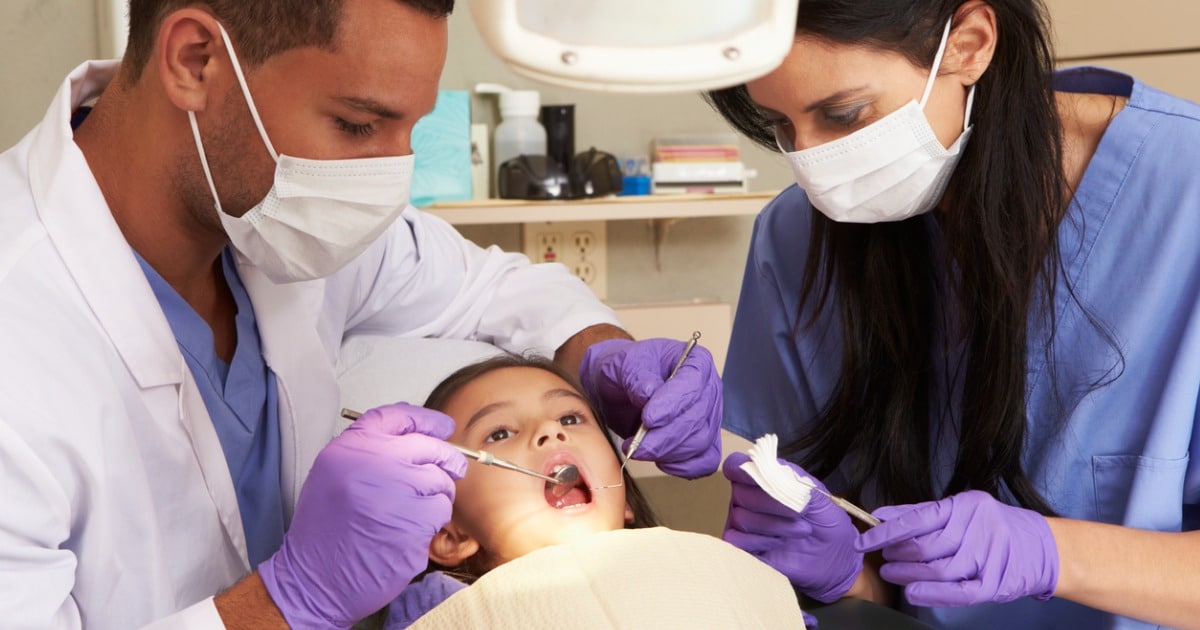The California Legislature Monday approved a state budget for the 2021-22 fiscal year that upholds the will of the voters when they passed the Proposition 56 tobacco tax in November 2016. The budget makes significant investments in Medi-Cal Dental improvements, workforce development and coronavirus relief.
This year is marked by a historic budget surplus of over $75 billion ― especially unexpected following a year of pandemic-related shutdowns. With the additional assistance of $27 billion in federal aid, lawmakers invested heavily in coronavirus recovery and other major priorities such as alleviating homelessness, preventing wildfires, mitigating drought and expanding access to health care.
Dental assisting job training, workforce development
The annual budget allocates $75 million for the High Road Training Partnership initiative of the California Workforce Development Board, which will result in training for thousands of jobs, creating entry into careers such as dental assisting with competitive starting salaries and long-term growth potential. The state will dedicate a portion of these grant funds to expand training for allied health roles to address COVID-19-related health care needs, including respiratory technicians, medical assistants and registered dental assistants.
Industry initiatives, such as CDA’s Smile Crew of California, which launched in October 2020, will be eligible to apply for state grants to use these funds to train and expand the dental assistant workforce in California. CDA President Judee Tippett-Whyte, DDS, in a brief video discusses the first training in April for over a dozen participants.
Medi-Cal rate stability and new investments
The state budget makes a long-term commitment to sustaining the supplemental Medi-Cal Dental reimbursements that apply to hundreds of dental codes and were scheduled to expire in July 2022. The supplemental rates equal an increase of at least 40% over the base rates and, in some cases, reach 80% of the average commercial payment. Making the reimbursements, which are funded by Proposition 56 (state tobacco tax) revenues, permanent will provide much-needed stability for Medi-Cal providers.
“CDA has been very active over the last five years to encourage dentists to participate in the Medi-Cal Dental Program,” said CDA President Dr. Judee Tippett-Whyte. “Ending the sunset date for Proposition 56 Medi-Cal reimbursements signals to providers that the state is committed to maintaining the progress long term.”
Since co-sponsoring Proposition 56 in 2016, CDA has advocated for lawmakers to implement the initiative as the voters intended. This budget is the result of CDA’s multi-year advocacy campaign. It finally stabilizes the significant provider rate increases and also fully funds the state Office of Oral Health, a CDA advocacy priority for the past few years.
The budget also includes major changes to the Medi-Cal program with the launch of the California Advancing and Innovating in Medi-Cal, which seeks to improve the quality of life and health outcomes of the state’s population by implementing broad delivery system, program and payment reforms across Medi-Cal.
The CalAIM Dental Improvement Program will provide about $230 million in new reimbursements for dental providers to continue and expand upon the most successful elements of the current Dental Transformation Initiative pilots that expire at the end of 2022. With the approval of CalAIM, the Medi-Cal Dental Program will add new benefits, including a caries risk assessment service bundle, with increased periodicity for children with higher caries risk.
Additionally, silver diamine fluoride will be reimbursed for young children and specified high-risk and institutional populations. This addition comes after several years of CDA's advocacy to add SDF as a benefit.
While Domain 1 of the DTI required providers to hit specific utilization benchmarks to receive annual incentive payments, this new benefit will be structured similarly to the existing Proposition 56 supplemental payments, which means providers will receive supplemental payments at the same time as reimbursement for that visit. These new statewide benefits will replace many of the services tested in the DTI Domains 1, 2, and 3 pilots. The program will also incorporate pay-for-performance incentives on 11 children’s preventive services codes.
The Department of Health Care Services will notify providers on specific details of the new benefits in forthcoming provider bulletins(sign up to receive them).
CDA will keep members informed about related Medi-Cal Dental Program changes as they are announced.

